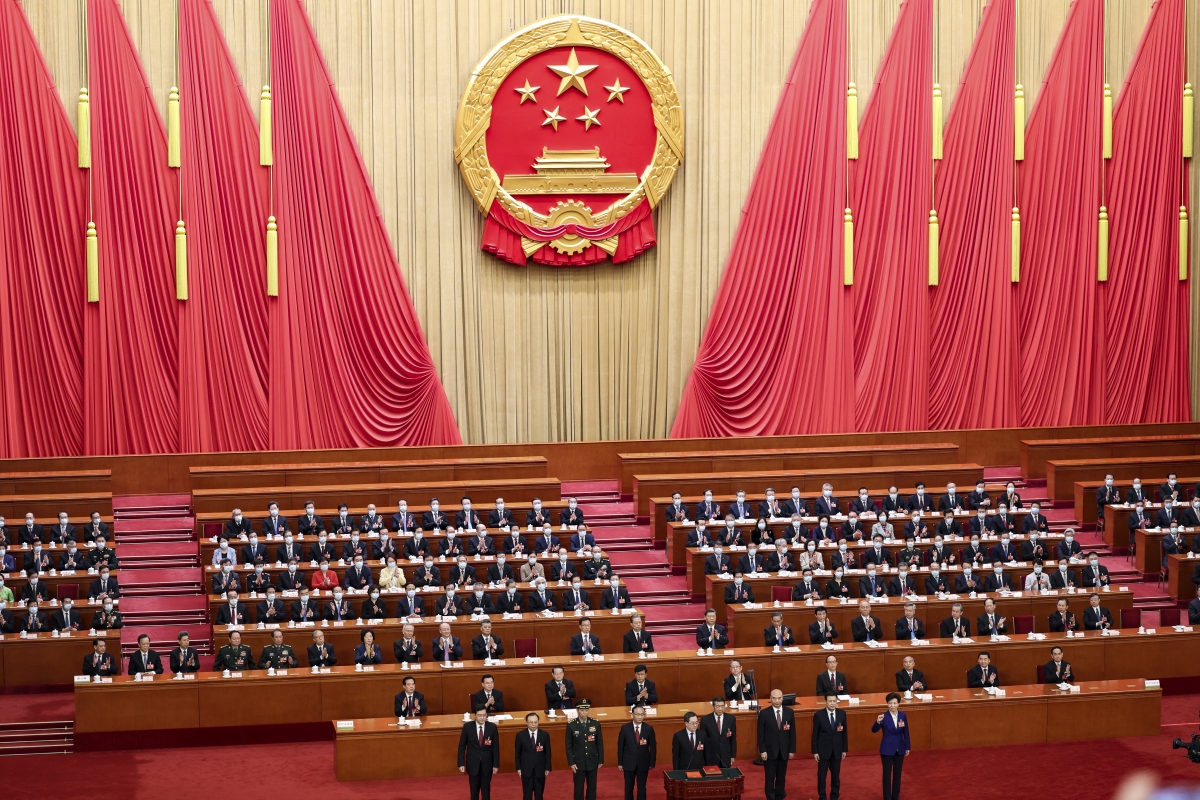New Report | What to Watch at China’s Two Sessions in 2024

New York; February 29, 2024 — Asia Society Policy Institute’s Center for China Analysis (ASPI CCA) has released a report titled “What to Watch at China’s Two Sessions in 2024.” The report was authored by CCA Managing Director Jing Qian and Fellow of Chinese Politics Neil Thomas.
CCA will also host a webinar “China 2024: What Does the Two Sessions Mean for the Economy, Politics, and Foreign Policy” on Wednesday, March 6, at 9:00am ET featuring Senior Fellows Christopher K. Johnson, Guonan Ma, and Jessica Chen Weiss in a conversation led by Neil Thomas.
The Two Sessions are the concurrent annual meetings of the National Committee of the Chinese People’s Political Consultative Conference (CPPCC), which begins on March 4, and the National People’s Congress (NPC), which opens on March 5.
The new report notes that “China watchers will pay special attention to this year’s Two Sessions as General Secretary Xi Jinping is yet to call a Third Plenum of the Party’s current Central Committee, which typically approves major reform agendas, and Premier Li Qiang will deliver his first government work report.”
Report authors Qian and Thomas analyze three categories of watchpoints at this year’s Two Sessions: policies, politics, and personnel and suggest a likely order of business based on prior schedules. Key watchpoints and quotes from the report, covering everything from Xi's grip on power to Taiwan, follow.
Policies — What Could be in Li Qiang’s Government Work Report (GWR)?
Economic Strategy: “Fundamentally, Beijing is expected to use the Two Sessions to announce tactical measures aimed at boosting short-term confidence in China's economy but without changing Xi's underlying strategy of investment-heavy state-guided development."
Growth Target: “Li will likely reveal a [GDP] growth target of around 5 percent... Compared with last year, a growth target of around 5 percent is still relatively ambitious.”
Deficit Target: “Xi’s centralization of power means that structural reforms to boost the fiscal capacity of local governments are unlikely, even though this is the most effective way to reduce their reliance on real estate revenues and address their dire financial situations.”
Technology and Industrial Policy: Xi’s recent speeches indicate that the government work report might suggest “investing in new productive forces means more policy support for upgrading old industries and building new industries including advanced manufacturing, agricultural technology, artificial intelligence, biotechnology, commercial aviation, digital economy, drones, green technology, life sciences, quantum computing, and venture capital.”
Foreign Policy: “[Li’s] GWR will likely echo themes of December’s Central Foreign Affairs Work Conference. The readout of this highly authoritative meeting provided the strongest articulation yet of China’s emerging diplomatic strategy to push back against U.S. leadership by aligning with the Global South on contentious issues such as climate change, free trade, and Palestine.”
Taiwan and Hong Kong: “Beijing’s stances on Taiwan and Hong Kong attract significant attention, but meaningful policy changes are unlikely...The most interesting watchpoint this year is whether Li Qiang vows to ‘fight’ rather than just ‘oppose’ or ‘curb’ Taiwan independence.”
Politics — What will Xi do at the Two Sessions?
“Xi’s most important contributions at the Two Sessions are the remarks he delivers to NPC provincial delegations and CPPCC sectoral groups...Such remarks often reflect or foreshadow core themes of national politics.”
“Xi’s hold on the Party will also be closely watched.” The NPC’s annual “yes” vote on the Government Work Report reflects Xi’s grip on power — or his slipping grip. “Votes will likely be near unanimous again this year, but economic malaise could raise the possibly of protest votes that could chip away at Xi’s façade of invincibility — another delicate point to watch.”
Personnel — Beijing to Restore Normalcy to Foreign and Defense Ministries?
Liu Jianchao is the front runner to become China’s new foreign minister, through which “he could help Xi stabilize relations with the West and repair some of the damage from aggressive ‘wolf warrior’ diplomacy.” If he becomes foreign minister, there is question of whether he will also become a state councilor.
Dong Jun replaced Li Shangfu as defense minister in December, and the “NPC will likely promote him to state councillor and the state Central Military Commission (CMC), a counterpart of the Party’s identical but more authoritative body of the same name.”
“If neither Dong nor Liu becomes a state councilor, this could suggest a higher degree of mistrust and paralysis at the center of Xi’s leadership and a poorer outlook for China’s attempts to both manage tensions with the West and lead the Global South.”
Read the full report here and register to attend the March 6 webinar here.
